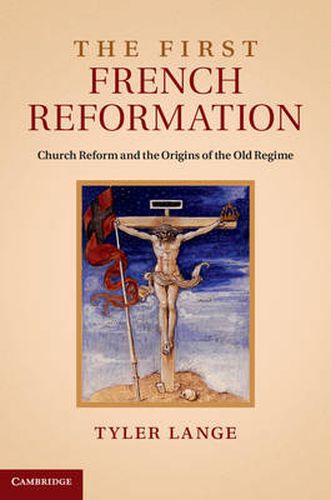Readings Newsletter
Become a Readings Member to make your shopping experience even easier.
Sign in or sign up for free!
You’re not far away from qualifying for FREE standard shipping within Australia
You’ve qualified for FREE standard shipping within Australia
The cart is loading…






The political culture of absolute monarchy that structured French society into the eighteenth century is generally believed to have emerged late in the sixteenth century. This new interpretation of the origins of French absolutism, however, connects the fifteenth-century conciliar reform movement in the Catholic Church to the practice of absolutism by demonstrating that the monarchy appropriated political models derived from canon law. Tyler Lange reveals how the reform of the Church offered a crucial motive and pretext for a definitive shift in the practice and conception of monarchy, and explains how this first French Reformation enabled Francis I and subsequent monarchs to use the Gallican Church as a useful deposit of funds and judicial power. In so doing, the book identifies the theoretical origins of later absolutism and the structural reasons for the failure of French Protestantism.
$9.00 standard shipping within Australia
FREE standard shipping within Australia for orders over $100.00
Express & International shipping calculated at checkout
The political culture of absolute monarchy that structured French society into the eighteenth century is generally believed to have emerged late in the sixteenth century. This new interpretation of the origins of French absolutism, however, connects the fifteenth-century conciliar reform movement in the Catholic Church to the practice of absolutism by demonstrating that the monarchy appropriated political models derived from canon law. Tyler Lange reveals how the reform of the Church offered a crucial motive and pretext for a definitive shift in the practice and conception of monarchy, and explains how this first French Reformation enabled Francis I and subsequent monarchs to use the Gallican Church as a useful deposit of funds and judicial power. In so doing, the book identifies the theoretical origins of later absolutism and the structural reasons for the failure of French Protestantism.